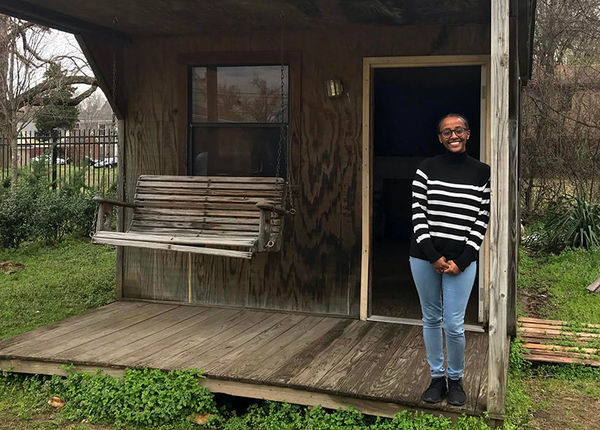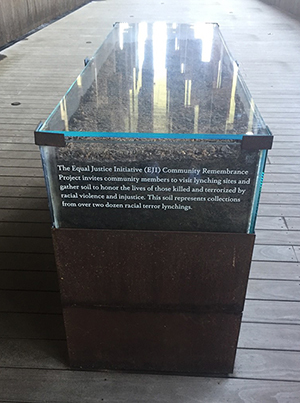
Sixty years after a small group of African American college students staged the first lunch counter sit-in in Greensboro, North Carolina, a group of Notre Dame faculty, staff, and students–including two Klau Center student affiliates–traveled to the American south to learn about, and draw continued inspiration from, the legacy of those decisive days.
The immersion seminar sponsored by the Center for Social Concerns and the Klau Center, “Act Justly: Racial Justice and the American Civil Rights Movement,” took place March 7-13, 2020. The group traveled to Washington, DC, Altanta, Montgomery, Selma, Birmingham, and Memphis, to visit and reflect upon key moments in the civil rights movement, with an eye toward the continued struggle for social justice today.
The Klau Center sponsored the participation of affiliates Belen Carriedo and Helina Haile, master of global affairs students at the Keough School, who saw the opportunity as important to their own development.
Visiting the Equal Justice Initiative’s National Memorial for Peace and Justice, in Montgomery, Alabama, Carriedo gained a deeper appreciation for the power of remembrance and memorializing. “The intentionality of gathering people around lynching sites, and collecting soil, is creative and compelling,” she observes. “Reflecting on this experience has made me question the ways that Notre Dame and the broader South Bend community can collaborate in co-creating sites for remembrance of the American Civil Rights Era.
“The pilgrimage was a healing journey of connecting to my chosen ancestors that continue to inspire me..."
For Haile, the week-long immersion also encouraged connections between the struggles of the past and her own work. “As I engage in civil rights and human rights work, this pilgrimage allowed me the opportunity to connect to the history of the civil rights movement in a profoundly impactful way,” she says. “The pilgrimage was a healing journey of connecting to my chosen ancestors that continue to inspire me, as I continue discerning how I want to contribute to the movement as a scholar-activist.”

In addition to offering financial support to the seminar and sponsoring student involvement, the Klau Center contributed to the curriculum through coursework offered by director Jennifer Mason McAward. “I was honored to contribute to the seminar’s curriculum,” says McAward. “Educating and inspiring future generations of leaders is central to the Klau Center’s mission. Indeed, it draws directly from the example of Fr. Ted, whose civil rights leadership was so essential. I am hopeful that the students will carry the lessons of this seminar with them as they move forward from Notre Dame.”
“Act Justly: Racial Justice and the American Civil Rights Movement” received support from the Department of American Studies, the Cushwa Center for the Study of American Catholicism, Human Resources, and the Jordan Family Foundation.